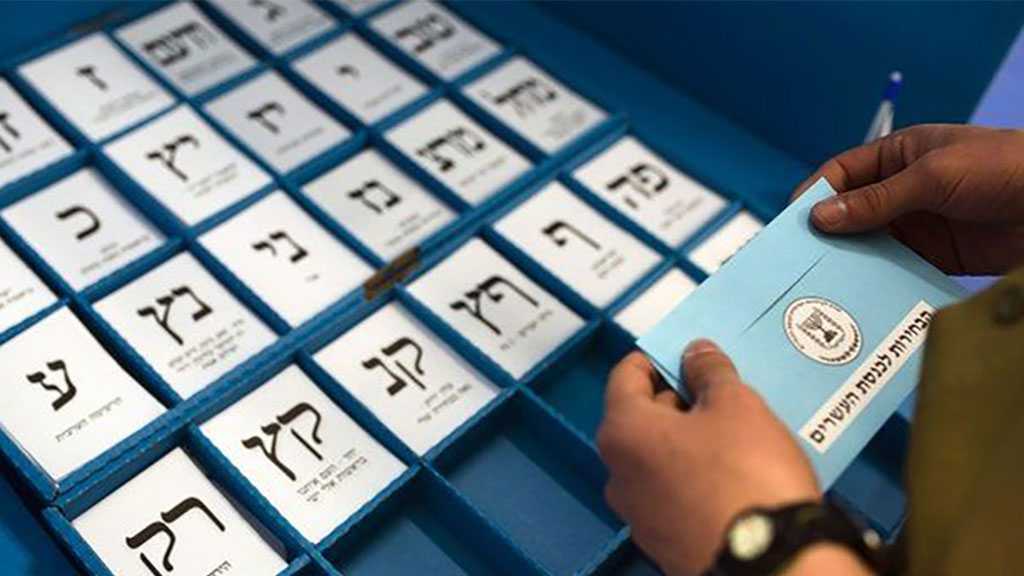
‘Israeli’ Elections: Poll Gives 67 Seats to Right-Wing Bloc As Likud Widens Lead over Blue and White

By Staff, Agencies
A few days ahead of the ‘Israeli’ occupation regime’s elections, a poll published Wednesday showed all right-wing ‘Israeli’ parties crossing the electoral threshold, giving Zionist Prime Minister Benjamin Netanyahu a possible 67-seat bloc after the April 9 elections.
According to the Haaretz poll, Netanyahu’s Likud party would receive 30 seats, beating rival Benny Gantz’s Blue and White party who would win just 27.
Blue and White has consistently polled ahead of Likud since it was formed in February through a merger of Gantz’s ‘Israel’ Resilience and Yair Lapid’s centrist Yesh Atid party, but has recently seen its lead over Likud slip in the polls, amid a series of negative campaigns.
Following the front runners, Labor would get 10 seats and the Union of Right Wing Parties — an alliance of the pro-settlement Jewish Home, National Union and extremist Otzma Yehudit — would get seven seats, as would Arab alliance Hadash-Ta’al.
The poll gave United Torah Judaism six seats. The New Right party, center-right Kulanu, right-wing Zehut, ultra-orthodox Shas and left-wing Meretz were all predicted by the survey to receive five seats apiece.
Yisrael Beiteinu and the Ra’am-Balad faction of Arab parties were both predicted to take four seats, with Gesher, led by independent MK Orly Levy-Abekasis, failing to pass the electoral threshold.
The survey was conducted under the supervision of Camil Fuchs, one of the Zionist entity’s leading pollsters, and included 1,002 respondents who were a representative sample of the population and questioned April 2-3.
For the poll, 700 Jewish settlers were questioned online and around 150 were polled by phone. In addition, around 150 others were questioned by phone. The margin of error is 3.2%.
Comments
- Related News



